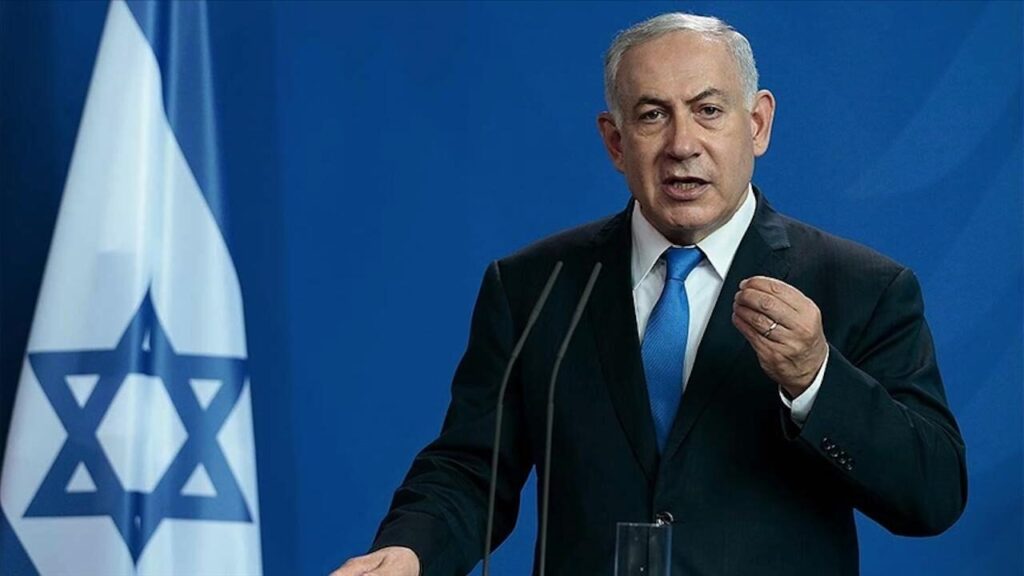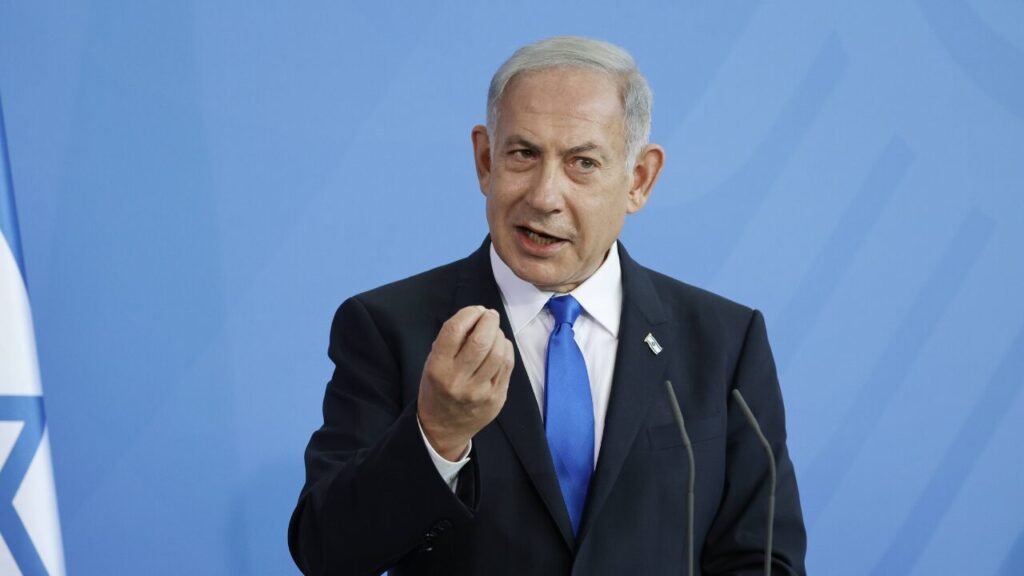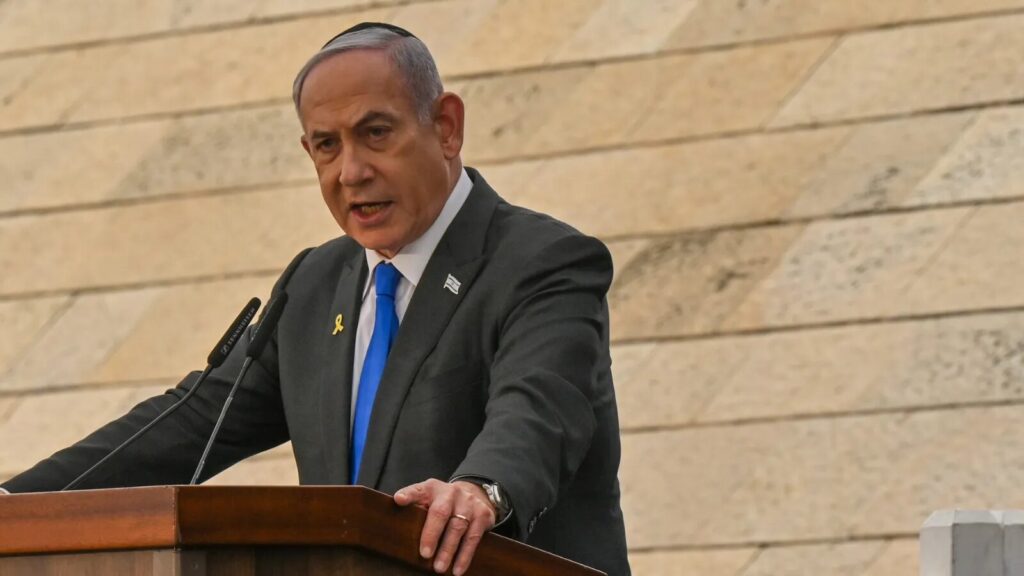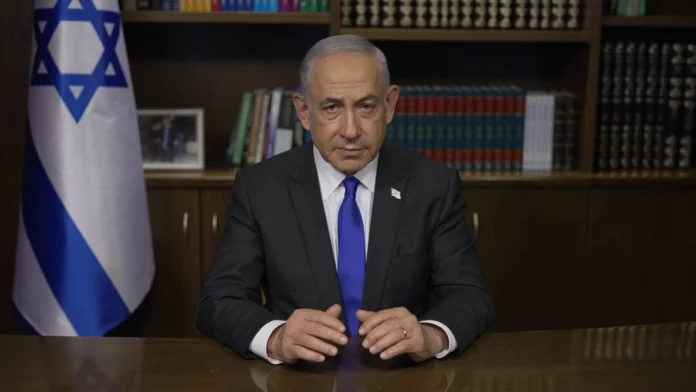Early Life and Background
Benjamin “Bibi” Netanyahu was born on October 21, 1949, in Tel Aviv, Israel. He comes from a distinguished family; his father, Benzion Netanyahu, was a prominent historian and a professor specializing in Jewish history, while his mother, Tzila Segal, was a homemaker. Netanyahu’s heritage is deeply rooted in the Zionist movement, which greatly influenced his political views and career.

Education and Military Service
Netanyahu spent part of his youth in the United States, where his father worked. He attended Cheltenham High School in Pennsylvania. After returning to Israel, he served in the Israel Defense Forces (IDF) from 1967 to 1972. As a member of the elite Sayeret Matkal commando unit, he participated in various operations, including the rescue mission of hijacked Sabena Flight 571 in 1972.

Following his military service, Netanyahu pursued higher education in the United States. He earned a Bachelor’s degree in Architecture and a Master’s degree in Business Administration from the Massachusetts Institute of Technology (MIT). He also studied political science at Harvard University.
Early Political Career
Netanyahu’s political career began in the late 1970s when he worked at the Israeli Embassy in Washington, D.C., and later served as the deputy chief of mission. His eloquence and strong defense of Israeli policies garnered attention, leading to his appointment as the Israeli ambassador to the United Nations from 1984 to 1988. His tenure at the UN was marked by vigorous advocacy for Israel and criticism of Palestinian terrorism.

Rise to Leadership
Netanyahu joined the Likud party and was elected to the Knesset (Israeli parliament) in 1988. He quickly rose through the ranks, becoming the party’s leader in 1993. In 1996, Netanyahu made history by becoming Israel’s youngest Prime Minister at the age of 46, a position he held until 1999. His first term was characterized by a tough stance on security issues and a cautious approach to the peace process with the Palestinians.
Return to Power
After a brief hiatus from frontline politics, during which he served as Minister of Foreign Affairs and Minister of Finance under Ariel Sharon, Netanyahu returned to lead Likud in 2005. In 2009, he once again became Prime Minister, a position he held for an extended period until 2021, making him the longest-serving Prime Minister in Israeli history.

During his subsequent terms, Netanyahu focused on security, economic growth, and diplomatic efforts. He was a vocal opponent of the Iran nuclear deal, advocating for stronger measures to prevent Iran from acquiring nuclear weapons. Netanyahu also worked to strengthen Israel’s economy, promoting technology and innovation.
Domestic Policies and Controversies
Netanyahu’s tenure has been marked by several domestic policy initiatives and controversies. He has been a polarizing figure in Israeli politics, admired for his security policies and economic management but also criticized for his handling of social issues and allegations of corruption.
His government implemented significant economic reforms, leading to robust growth and a thriving tech industry. However, Netanyahu faced criticism for his policies regarding the Israeli-Palestinian conflict, settlement expansions in the West Bank, and his approach to minority rights.

In recent years, Netanyahu has been embroiled in legal battles, facing charges of bribery, fraud, and breach of trust. These allegations have sparked widespread protests and calls for his resignation, but he has consistently denied any wrongdoing, framing the charges as a political witch hunt.
Diplomatic Achievements
One of Netanyahu’s significant achievements is his role in brokering normalization agreements between Israel and several Arab nations, known as the Abraham Accords. These agreements, signed with the United Arab Emirates, Bahrain, Sudan, and Morocco, have been hailed as a breakthrough in Middle Eastern diplomacy, potentially reshaping regional dynamics.

Netanyahu has also maintained strong ties with the United States, particularly under President Donald Trump’s administration, which recognized Jerusalem as Israel’s capital and moved the US embassy there. This move, along with US recognition of Israeli sovereignty over the Golan Heights, was seen as a diplomatic victory for Netanyahu.
Legacy and Current Status
Benjamin Netanyahu’s legacy is complex and multifaceted. He is credited with transforming Israel into a global economic and technological powerhouse while maintaining its security in a volatile region. His hardline stance on security and his diplomatic efforts have left a lasting impact on Israel’s foreign relations.
However, his tenure has also been marked by deep political divisions within Israel, ongoing conflicts with Palestinians, and his legal troubles. As of 2024, Netanyahu continues to be an influential figure in Israeli politics, leading the opposition and remaining a pivotal player in the country’s future.

Conclusion
Benjamin Netanyahu’s life and career reflect the tumultuous and dynamic nature of Israeli politics. From his early days in the military to his role as a statesman, Netanyahu has been a defining figure in shaping modern Israel. His legacy will be debated for years to come, reflecting both his achievements and controversies.
What are your thoughts on Benjamin Netanyahu’s impact on Israel and the broader Middle East? Share your views in the comments section below.

